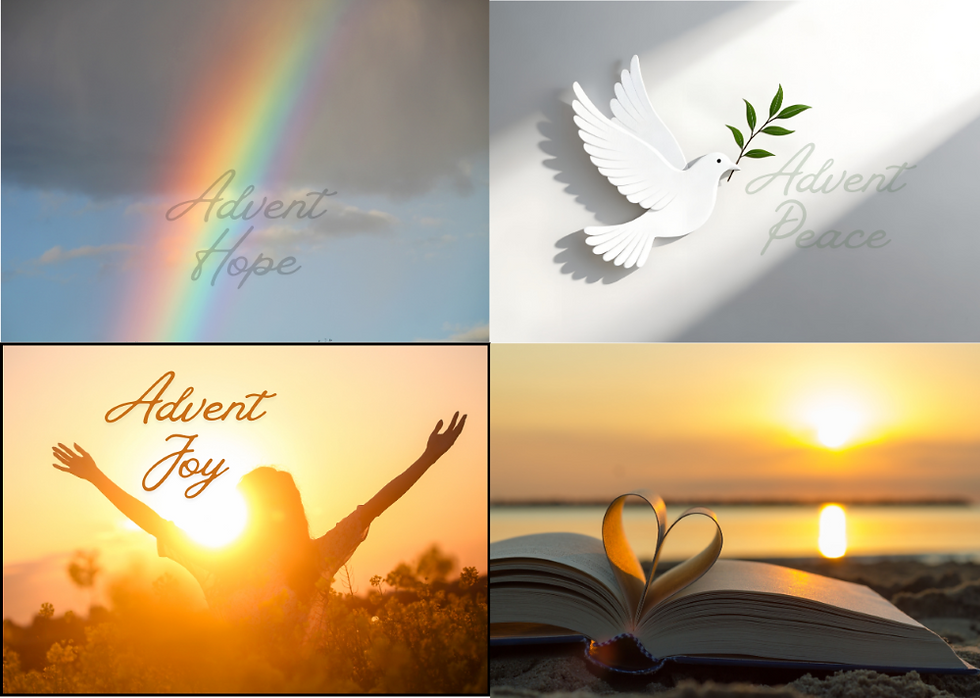Cave. Table. Road.
- Alistair Birkett

- Apr 6, 2022
- 3 min read
As we begin Holy Week, I’ve been struck once again by the amazing events surrounding the journey from Palm Sunday to Easter Day. While reading through Luke’s Gospel I’ve been made acutely aware of the contrasts we encounter there; from the ecstatic crowds singing out their hosannas, to Jesus’ solitude in the garden (Lk 22:41). From righteous anger as the temple is cleansed, to loving words of forgiveness spoken from the cross (Lk 23:34), and all that coupled with Jesus who cried (Lk 19:41), spoke out against misguided religiosity (Lk 20:46) and suffered excruciating pain and isolation as he hung on the cross.
I suppose it’s no great revelation, but it seems to me that pretty much every human emotion is encountered and experienced by the characters we come across in the Holy Week narrative. The stark contrast of Jesus’ life and death, in many ways reflecting our own life journeys; the highs and lows, the bump and grind, the contrasting emotions, illness and pain, joys, fears and hopes for the future all rolled into one awesome account as the Son of God died, was buried and rose again that each one of us might know the Creator God.

Recently I was fortunate enough to be part of a group of church leaders and pioneers who joined together for our Learning Community retreat day on the beautiful Holy Island of Lindisfarne. As the day progressed and we were able to talk and share together, I became conscious of the range of emotions and very different situations we’d all brought to that day; some people were feeling particularly encouraged, others were finding things very tough. Some people were seeking to kick-off brand new pioneering projects, others had been in the same role for many years. Some people were fearing the future, others looking ahead with a faith-filled optimism.
As Scott Brennan sensitively led us through our day together, we were encouraged to consider our current situation in the context of three simple, yet profound areas from the life of Elijah as seen in 1 Kings chapters 18 and 19 namely; Cave, Table & Road. Scott comments that “Cave is the place of intimacy with God, a place of silence and solitude, sometimes a place of darkness. It is the listening place; it is the boiler room and often brings moments of revelation. Table is the place of refreshment, of restoration. It is often communal, a place of caring and sharing. It can be human and angelic. Road is the place of action, recruitment and training. It is where the rubber hits the road, where mission happens, anointing successors for future generations.”*

As we journey through Holy Week I’d urge you, as we did together on Holy Island, to take time considering where you currently find yourself be it cave, table or road, and also, crucially, where God might be calling you to be for this coming season? Like many of the Christian festivals, it’s just so easy to surround ourselves with the busyness of activity over Easter, perhaps God is calling us to retreat and refocus? Admittedly, we can’t stay in the cave forever, contemplation must be accompanied with action. Conversely, too much time on the road leads to burnout, and if we only have table time, we’ll lack that personal intimacy with God.
As you take time to reflect on these thoughts this week one thing is for sure; wherever we find ourselves right now, be it cave, table or road, some aspect of the Holy Week narrative will speak profoundly to our situation, as we once again welcome the King of Kings.
Alistair Birkett
Director: Scotland & Northern England
*Scott Brennan, Cave, table, road: Notes for RM Learning Community retreat day. March 2022



Comments